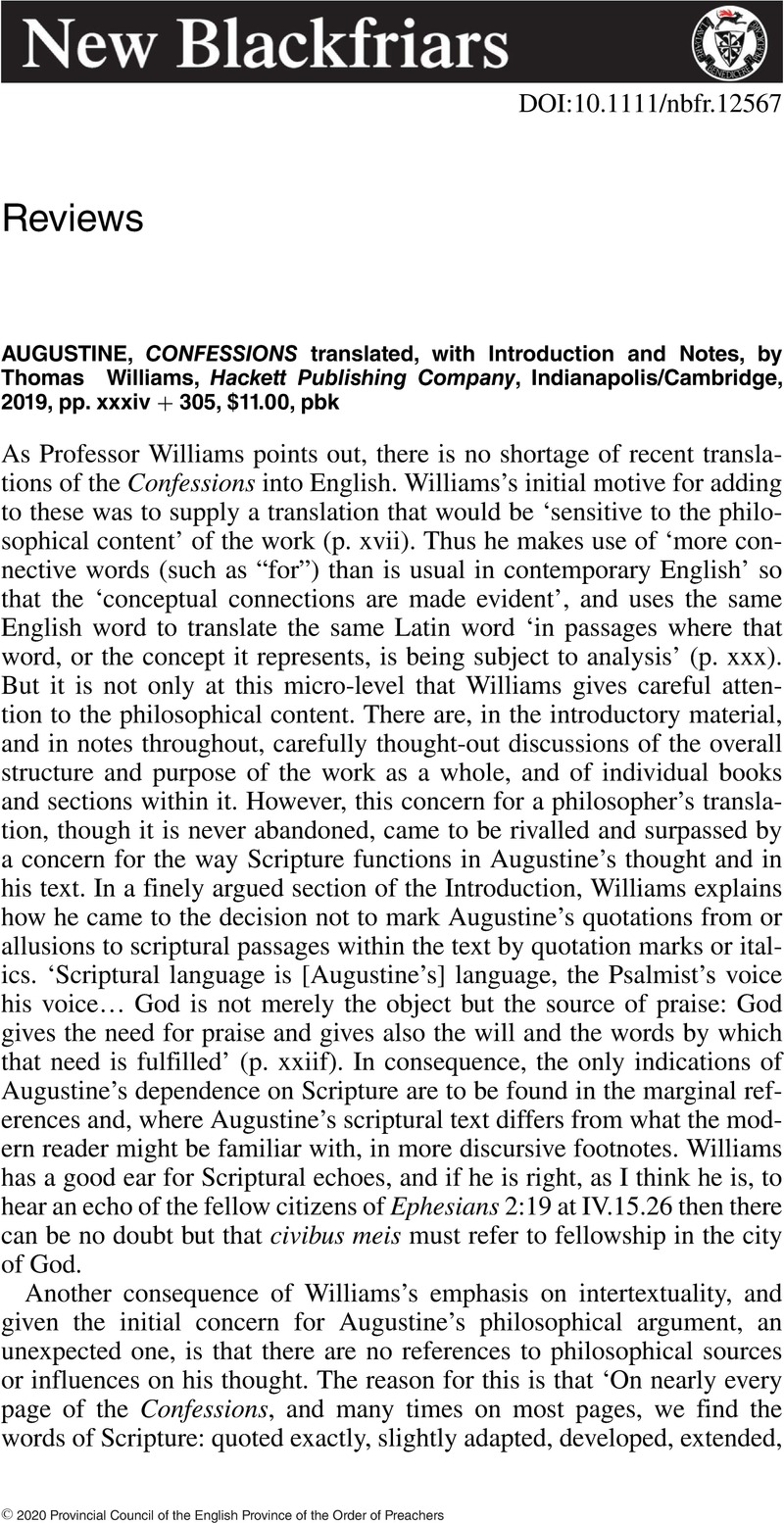No CrossRef data available.
Article contents
Augustine, Confessions translated, with Introduction and Notes, by Thomas Williams, Hackett Publishing Company, Indianapolis/Cambridge, 2019, pp. xxxiv + 305, $11.00, pbk
Review products
Augustine, Confessions translated, with Introduction and Notes, by Thomas Williams, Hackett Publishing Company, Indianapolis/Cambridge, 2019, pp. xxxiv + 305, $11.00, pbk
Published online by Cambridge University Press: 01 January 2024
Abstract
An abstract is not available for this content so a preview has been provided. Please use the Get access link above for information on how to access this content.

- Type
- Reviews
- Information
- Copyright
- Copyright © 2020 Provincial Council of the English Province of the Order of Preachers


